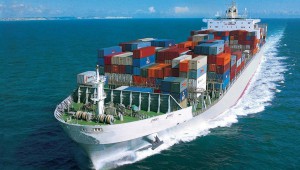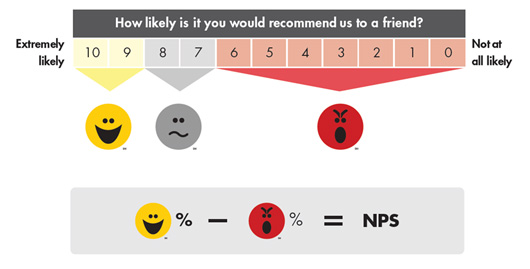Over breakfast at a recent international trade show, a colleague and I were discussing with a manufacturer the merits of using an export management company vs. managing their exports in-house. “Sure, I get it,” the manufacturer said, “Your company can consolidate orders from different factories, but otherwise I don’t see what advantages you offer.”
The comment got us thinking that it might be useful to start a conversation about the special services and added value export management companies provide.
The Export Sales Function
 An export management company’s primary responsibility is to generate sales through established accounts and develop new distribution in an assigned territory. Like any rep organization, an export management company is expected to file reports from the field, communicate regularly on their activities and serve a manufacturer loyally, never selling competing lines.
An export management company’s primary responsibility is to generate sales through established accounts and develop new distribution in an assigned territory. Like any rep organization, an export management company is expected to file reports from the field, communicate regularly on their activities and serve a manufacturer loyally, never selling competing lines.
Because export management companies typically represent a range of complimentary product lines, their sales personnel often will spend a week or more in a given country, calling on distributors or agents of the company’s various product lines. In contrast, a direct factory sales manager when visiting a country will spend one or two days there, visit one distributor or agent, then move on to the next market. By calling on so many different accounts, an export management company’s sales manager develops a broader, more comprehensive view of a market, which is especially useful in measuring a distributor’s relative market reach or financial strength or evaluating whether to make a change.
Because they handle multiple lines, an export management company also typically can afford to deploy more sales people and visit more markets with greater frequency than direct factory personnel. The best export management companies base their sales managers close to their markets, ensuring real-time communication and a close cultural affinity with the customers they serve.
Export Credit
 While field sales coverage is the most important function of an export management company, it is just one of a complete array of services they provide.
While field sales coverage is the most important function of an export management company, it is just one of a complete array of services they provide.
For starters, export management companies take title and assume the foreign credit risk, without recourse to the manufacturer. If there is a currency crisis or political upheaval somewhere on the planet, and customers can’t pay their bills, it’s the export management company’s responsibility to pay its principal on the due date and pursue collection on their own. Some manufacturers who manage their own exports assume the foreign credit risk themselves, but many that do so insist that customers pay cash in advance or via letter of credit, which often discourages an importer from buying in volume or holding the inventory necessary to compete. In some instances, export management companies are expected also to possess the financial muscle to issue bid bonds or stand-by letters of credit to guarantee delivery or warranty.
For the export management company extending credit, the risks are considerable, and in difficult economic times, the payment delays and losses can mount. “We extend a lot of credit and assume a lot of risk, particularly in some of the fast-growth, emerging markets,” says Ken Tallevi, Dorian Drake’s credit manager, “But our sales people get to know our accounts on a first-hand basis, we do our homework and stay on top of slow-paying accounts. As a result, our track record managing foreign credit risk has been very good.”
Export Traffic & Logistics
Because export management companies transact the sale themselves, they also assume responsibility for coordinating the export shipment. Many importers rely on the export management company to secure the best freight rates, consolidate their cargo from multiple manufacturers and coordinate freight moves on their behalf. For those importers who arrange their own export shipments, the better export management companies facilitate communication between the factory, the customer and the forwarder, keeping all parties apprised of shipment status and ensuring the importer receives all export documents in time to clear goods from customs and pay their bills.
An aspect of export traffic management that has become increasingly complex is regulatory compliance, which in the US has been much more closely monitored since 9/11. To ensure that Dorian Drake and the manufacturers we represent remain in compliance, Tallevi; Amal Rabadi, our traffic manager; and Robin Wallace, our controller; have taken courses in Export Compliance. Likewise, many foreign governments increasingly require documentary compliance with their own health, sanitary and safety regulations, all of which require time and expertise to address.
“To some manufacturers, these might seem like routine clerical functions,” notes Rabadi, “But in reality moving cargo and delivering properly prepared export documents on time is critically important to importers who are under pressure to meet their customer’s delivery requirements, particularly if they operate in a seasonal business like outdoor power equipment,” a core category for Dorian Drake’s Hardware, Lawn & Garden Group.
International Marketing & Customer Service
 Often lost in this discussion are the other forms of day-to-day customer service export management companies typically provide. Because export management companies handle the shipping and credit, they become the customer’s main point of contact for pricing, samples, product and marketing information and the trouble-shooting of claims. At Dorian Drake, these functions are managed by our inside sales and marketing services teams, staffed by individuals with the unique blend of product knowledge and cross-cultural skills necessary to support an international customer base.
Often lost in this discussion are the other forms of day-to-day customer service export management companies typically provide. Because export management companies handle the shipping and credit, they become the customer’s main point of contact for pricing, samples, product and marketing information and the trouble-shooting of claims. At Dorian Drake, these functions are managed by our inside sales and marketing services teams, staffed by individuals with the unique blend of product knowledge and cross-cultural skills necessary to support an international customer base.
Of course, sales and territory management remains the export management company’s most critical function, its sine qua non. In this era of rapid communication, the best export management companies staff their sales people close to their markets and train their people to sell at the same high level as factory-direct personnel. Dorian Drake today employs sales people in 11 different international locations in Europe, the Middle East, Asia and Latin America, all factory-trained and certified in consultative sales.
Managing the Total Customer Experience
At Dorian Drake, we’ve come to recognize that our goal as an export management company is to manage the customer’s total experience importing one or more of the product lines we represent. Understanding this, and knowing that intermediaries are increasingly being cut out of the supply chain in many industries, we know we must deliver great service to our customers and clients to stay relevant in our industries. With this in mind, two years ago we launched an initiative to define what great service looks like and how we can hire for it, train for it, measure it, and reward it. As part of this initiative, we adopted use of the Net Promoter Score, or NPS, survey, first developed by Bain & Co., the Boston-based consulting firm, which has become the gold standard of customer satisfaction surveys in the United States today.
We make no pretense of delivering great service to all our customers and clients in every instance, but we know that’s the standard to which we must strive.
What Do All of These Services Cost?
With an export management company providing so many services, manufacturers invariably ask “What’s the cost for all these services,” and “What role will my people play in the management of our export sales?”
The answer to the first question varies. Because they buy and sell, export management companies are compensated by means of a discount below the manufacturer’s standard distributor price. The discount is often the same, a bit more, or sometimes even a bit less, than what a commission rep earns, and usually much less than what a manufacturer would have to pay to staff and manage and an export program on their own. And, of course, the costs are variable, a big benefit to the manufacturer, particularly in an economic downturn.
The answer to the second question depends mostly on the manufacturer. Some manufacturers assign a point person to work closely with their export management company and serve as an internal champion for export inside the manufacturers’ organization. Some manufacturers will also a assign technical service or customer service rep to focus on export, making the manufacturer – export management company relationship a truly collaborative affair. We have found at Dorian Drake that this type of collaborative approach usually yields the best results.
Ed Dorian Jr.
White Plains, NY
March 16, 2015
From Tokyo, Japan
**********
Tell Us What You Think!
We’d like to hear your comments and questions about the services and value an export management company provides. Feel free to leave a comment or question or simply join the discussion below.







Pingback: Krowne Metal Corporation Appoints Dorian Drake International as its Export Management Company – Dorian Drake International Inc.